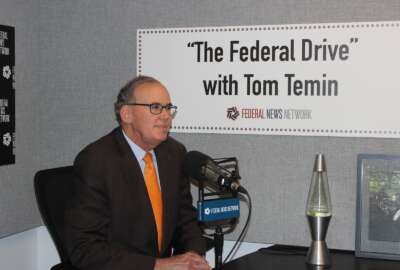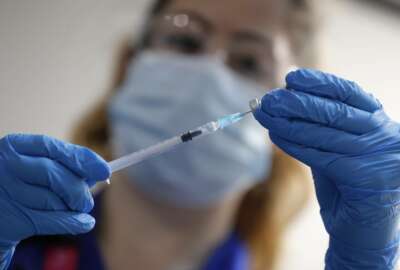VA restarts collection notices for benefits overpayments after COVID put them on hold
VA deferred collection of these overpayments to give veterans financial relief due to the COVID-19 pandemic.
COVID-19’s impact on veterans is not slowing down but the Department of Veterans Affairs is going ahead with its plan to restart collections for care. The agency’s Office of Public and Intergovernmental Affairs announced Wednesday that it would resume overpayment notifications for benefit overpayments that were suspended from April 3 through Jan. 1, 2021.
Secretary Robert Wilkie said veterans and beneficiaries who still are experiencing financial hardships due to the pandemic still will have access to certain enhanced relief options as a result.
VA deferred collection of these overpayments during to the COVID-19 pandemic, including suspending all actions on veteran’s debts under the jurisdiction of the Treasury Department, and suspending collections or extending repayments for preexisting VA debts.
As such, veterans could submit their paperwork late for purposes of perfecting claims, challenging adverse decisions, submitting “notices of disagreement,” submitting “substantive appeals,” and if responding to “supplemental statements of the case.”
“These include extending repayment plans, waivers, compromises and temporary hardship suspensions,” Wilkie said in a statement. “Most importantly, the department will pause collections through October 2021 for veterans who remain in financial hardship and request relief.”
Since April 6, VA put monthly copay patient statements on hold, although veterans could make payments before the statements restart next month. The statements going out in January may include the total amount of any new copay charges for medical care and prescriptions received from April 6 through Dec. 31, and unpaid copay charges for medical care and prescriptions received before April 2020.
The department said it was processing benefits payments as normal and that it would not count any money received as part of the COVID-19 stimulus package as income for VA disability compensation, individual unemployability, VA pension, or parent Dependency and Indemnity Compensation (DIC) beneficiaries.
Veterans and beneficiaries with questions regarding benefit overpayments can submit requests online through the Inquiry Routing and Information System (IRIS), which has staff assigned to individual cases. Beneficiaries can also call 800-827-0648, but VA’s Debt Management Center said on its website as of Thursday, Dec. 31, it was struggling with high call volume due to the COVID-19 debt suspension notifications. The center will also close Friday, Jan. 1, for the federal holiday and will reopen Saturday, Jan. 2 from 6 a.m. EDT (7 a.m. CDT) until 2:30 p.m. EDT (3:30 p.m. CDT). The center resumes normal operating hours on Monday, Jan. 4.
As for its response to the virus itself, VA said on Dec. 16 it had begun administering the Pfizer-BioNTech COVID-19 vaccine to frontline health care workers and veterans in long-term care and spinal cord injury centers, in New Orleans and Bedford, Massachusetts. As of Wednesday the department said it had administered more than 55,000 vaccines nationwide, using both the Pfizer-BioNTech and the Moderna versions.
By Thursday morning, the department tabulated 152,091 cumulative COVID-19 cases among veterans, employees and non-veterans tested or treated at VA facilities – 10,726 active cases and 6,607 known deaths – according to its public data tracker. Employees accounted for 1,055 of the active cases, 13,587 convalescent cases, and 95 VA employees have died from the virus as of Tuesday.
It’s why employee union representatives said before the December holidays that many VA medical center workers were feeling “burned out” and a sense of despair. Age-old staffing shortages were making it even harder to treat patients and keep health care workers quarantined if they test positive.
During the six weeks between March 15 and May 1, the Veterans Health Administration canceled 7.3 million appointments after it instructed medical facility staff to avoid non-urgent face-to-face contact with patients. And although some were converted to telehealth appointments, VA Inspector General Michael Missal told Federal Drive with Tom Temin back in September that there was no evidence of follow-up for about 2.3 million of the cancelled appointments. Missal called VHA’s guidance on March 22 to designate all canceled appointments as being canceled by the patient “whether or not the patient really canceled it” problematic because it was less likely to encourage facilities to follow up.
Missal said some veterans had multiple appointments canceled, making it unclear exactly how many individuals never got rescheduled.
Copyright © 2025 Federal News Network. All rights reserved. This website is not intended for users located within the European Economic Area.
Amelia Brust is a digital editor at Federal News Network.
Follow @abrustWFED
Related Stories

How did VA do with rescheduling appointments canceled because of the pandemic?




